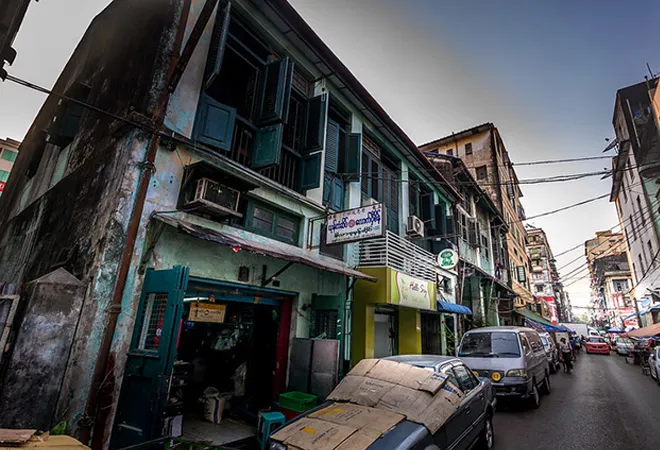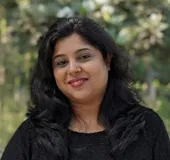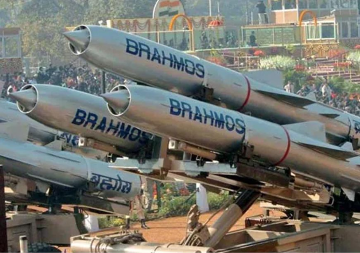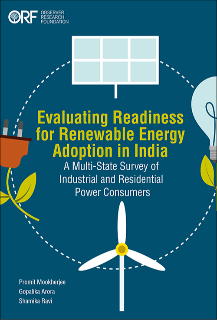The COVID-19 virus has set extraordinary challenges to nation-states across the world. In the last few months, the pressure is felt not only on the health infrastructure — but on economy, livelihood and social life of nations and individuals. Myanmar has so far been fortunate to record very low number of COVID-19 cases, though it has a large border with China. Till now, it has recorded only 151 cases. But, given the rising trend of cases in neighbouring countries and the world at large, the numbers are anticipated to rise.
It seems Myanmar is rather optimistic that the COVID-19 trend will subside by that time. But are they prepared? This remains an important concern.
Later this year, the national elections, the first after Aung San Suu Kyi and her National League Democracy (NLD) came to power five years ago, will be due. It is hoped that the elections may be postponed amidst the COVID-19 scenario. A member of the Union Election Commission (UEC), U. Myint Naing, had, however, recently announced that the elections will take place as scheduled in November. And the dates will be announced in the near future. It seems Myanmar is rather optimistic that the COVID-19 trend will subside by that time. But are they prepared? This remains an important concern.
With more than 1,100 seats in the Union, state, and region legislative bodies, the upcoming election will be the sixth held under the rubric of the 2008 Constitution, and the 14th since independence in 1947. Administered by the presidentially appointed Union Election Commission (UEC), the 2020 election will feature the ruling National League for Democracy (NLD), the Union Solidarity and Development Party (USDP), the current opposition and major former ruling party, besides dozens of other parties, including ethnic, at all levels. Conventionally dominant parties tend to rule the nation over the minority ones, if one goes by the historic trend.
State of affairs
The NLD’s performance in the last five years has been quite disappointing. The landslide victory of the party had hoped to bring the much-awaited transition from a totalitarian to a democratic government. It was thought that with parliamentary majority, things will move in a better direction, like releasing political prisoners, repealing repressive laws, improving economy and addressing environmental issues. However, much of it remains unaddressed.
The government mostly remained silent during the military atrocities done over the ethnic minorities, continuing to paint a rather dark picture of the nation in front of the world.
Since the onset of coming into power, it can easily be noted that the NLD remains careful in its dealing with the military. The military continues to play prominent role both in its stance and actions. The government mostly remained silent during the military atrocities done over the ethnic minorities, continuing to paint a rather dark picture of the nation in front of the world.
The loss of the by-elections held towards the end of 2018 pushed the party to gear up to address the issues they had advocated while they came into power, one of them being the amendment of the Constitution. The much controversial amendment had hoped to lessen the power of the military. Nevertheless, in March 2020, the NLD’s move remained unfulfilled as most of the proposed amendments remain unapproved.
The grandeur of the military is quite intact. At present, with no traditional method of electoral campaigning, the preventive and curative measures adopted by the government or rather parties to control the current COVID-19 situation, may be effective in swaying votes.
Parties in action
On ground, both the civilian and military parties are playing an active role to subdue the COVID-19 crisis. As soon as the COVID-19 cases knocked on the nation’s door, the Central Committee on Prevention, Control and Treatment of the Coronavirus Disease (CPCTCD) was formed on 26 March to overlook activities related to COVID-19. State Counsellor Daw Aung San Suu Kyi chairs the high-level meetings and has also started her crisis communication forum to update the populace on the status of the government’s response to COVID-19. A Facebook account has been created to be in touch with the masses.
Stimulus packages have been introduced with a slogan of ‘leaving no one behind’ to keep the general population and the economy afloat.
With guidance from the CPCTCD, the Ministry of Health is now at the forefront of the fight on COVID-19. As such, the government has developed a whole-of-society approach to include several ministries, non-governmental organisations, international organisations, civil society organisations, including religious groups, and volunteers.
Like in other countries, stimulus packages have been introduced with a slogan of ‘leaving no one behind’ to keep the general population and the economy afloat. Public places, movie theatres, shopping malls, restaurants and education institutions have been shut. Night curfews and social distancing norms have been introduced.
In an interesting move on 30 March, another ten-member COVID-19 task force, comprising mostly Tatmadaw members, was also been formed. The central task of this committee is to keep track on the confirmed cases, examine it, and tighten controversial media news. Although the government has not formally declared a state of emergency, the new committee’s comprehensive authority is quite visible. It is even spearheaded by a former powerful general. Many observers are of the opinion that the Tatmadaw is effectively back in the forefront. They fear that Tatmadaw may consequently leverage the situation to come back to power in the upcoming elections.
Challenges
While COVID-19 is pressurising leaderships in each nation to work in harmony against the common enemy, the Tatmadaw continues to wage war against the Arakan Army (AA). The AA is an ethnic Rakhine armed group that seeks autonomy from Myanmar. Rakhine is the second poorest state within Myanmar with a weak health infrastructure. In rural areas here, availability of health personnel is negligible. The Rakhine State Township has only one doctor per 83,000 people or 0.12 per 10,000. If the Myanmar authorities do not address this situation, Rakhine will remain prone to local transmissions since it shares border with Bangladesh where COVID-19 cases are quite high.
The lack of social distancing, water availability, health personnel and information on COVID-19 in the IDP camps make it difficult to prevent a coronavirus outbreak in the area.
The recent attack on the WHO vehicle transporting COVID-19 samples to the national laboratory in Yangon sets a rather dismal picture of the security in the region. Investigations are ongoing to verify whether the AA or any other rebel group is behind this act.
In this region, the continued conflict has resulted in about 200,000 internally displaced persons (IDP). A large number of such individuals live in camps which is not equipped with proper shelters or food arrangements. The lack of social distancing, water availability, health personnel and information on COVID-19 in the IDP camps make it difficult to prevent a coronavirus outbreak in the area.
If the ruling as well as opposing party continues to overlook this issue, it may affect them adversely in the long run. If the NLD wants a second term in the government, it needs to implement the concept of leaving no one behind not only in paper, but also in action by including not only the marginalised workers, the IDPs and ethnic minorities in the nation. A medium-term economic plan also needs to be chalked out to secure the nation from the economic backlash in the coming months.
Though the upcoming election is currently shrouded over ambiguity over the COVID-19 situation, the current government needs to act efficiently and responsibly to prevent autocratic parties grabbing power again.
This commentary originally appeared in South Asia Weekly.
The views expressed above belong to the author(s). ORF research and analyses now available on Telegram! Click here to access our curated content — blogs, longforms and interviews.




 PREV
PREV


